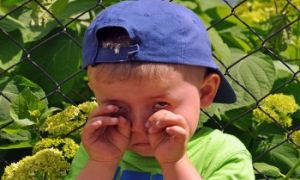

Celebrating NAIDOC Week with babies aged 0–12 months is a beautiful opportunity to introduce them to the richness of Aboriginal and Torres Strait Islander cultures through sensory, visual, and rhythmic experiences. Here are some gentle, age-appropriate ideas tailored for your littlest learners.
Math resources and manipulatives are powerful tools that bring abstract concepts to life for young learners. When incorporated thoughtfully into play-based environments, math manipulatives not only support EYLF outcomes but also nurture confidence, curiosity, and a lifelong love of learning. The following lists 10 Math Resources and Manipulatives for Children.
Here’s a thoughtfully curated list of 20 autism-friendly activities that align beautifully with inclusive early childhood practices. These ideas support sensory regulation, communication, emotional development, and agency—while being playful and engaging for all children.
Helping toddlers and preschoolers build emotional vocabulary is like giving them a toolbox for life—they learn to name what they feel, which helps them express themselves, regulate emotions, and connect with others. Here are some engaging, developmentally appropriate strategies and games to teach emotional vocabulary.
A “feelings toolbox” is a collection of strategies, visuals, and resources that help children recognize, express, and regulate their emotions. The following article provides information on What Is A Feeling Toolbox?, Benefits Of A Feeling Toolbox, Feeling Toolbox Tools For Different Age Groups, Effectively Implementing A Feeling Toolbox, Examples For Using The Feelings Toolbox in Real-Life Scenarios and more.
Language and literacy experiences for preschoolers aged 3 to 5 are all about sparking curiosity, building confidence, and laying the foundation for lifelong communication. Here’s a mix of engaging, developmentally appropriate ideas you can weave into your program.
The following provides a playful mix of language and literacy experiences perfect for toddlers (around 2–3 years), designed to build vocabulary, listening, and early communication skills through everyday fun.
Here are 20 engaging activities designed to boost problem-solving skills in preschoolers. Each activity offers a playful and hands-on way to stimulate critical thinking, spatial awareness, and decision-making while keeping learning fun.
Yoga games offer a treasure trove of benefits for kids—blending movement, mindfulness, and play in ways that support both body and mind. The following provides 20 Yoga Games For Preschoolers.
World Music Day is celebrated on June 21st. Music is a powerful tool for fostering inclusivity and cultural appreciation in early childhood education. It introduces children to diverse sounds, rhythms, and traditions from around the world, helping them develop empathy and a broader understanding of different cultures.
 Toddlers have a greater understanding of the world around them by this stage. Their cognitive development (also known as intellectual development and thinking skills) continues… Read More
Toddlers have a greater understanding of the world around them by this stage. Their cognitive development (also known as intellectual development and thinking skills) continues… Read More
 Infants begin to develop trust when parents begin to fulfil their needs. Such as changing an infant's nappy when needed, feeding on request and holding… Read More
Infants begin to develop trust when parents begin to fulfil their needs. Such as changing an infant's nappy when needed, feeding on request and holding… Read More
 Beginning at birth the construction of thought processes, such as memory, problem solving, exploration of objects etc, is an important part of an infant’s cognitive… Read More
Beginning at birth the construction of thought processes, such as memory, problem solving, exploration of objects etc, is an important part of an infant’s cognitive… Read More
 Toddlers want to do more on their own and do not like it when you begin to establish limits on their behaviour. Tantrums can become… Read More
Toddlers want to do more on their own and do not like it when you begin to establish limits on their behaviour. Tantrums can become… Read More
 Your preschooler is now able to focus their attention more accurately and is less influenced by distractions. The intensity of questions increase as your child… Read More
Your preschooler is now able to focus their attention more accurately and is less influenced by distractions. The intensity of questions increase as your child… Read More
 John Dewey is often seen as the proponent of learning by doing – rather than learning by passively receiving. He believed that each child was active,… Read More
John Dewey is often seen as the proponent of learning by doing – rather than learning by passively receiving. He believed that each child was active,… Read More
 Toddler advance and gains new skills in Gross Motor Development milestones achieved throughout earlier years. Co-ordination and challenges that could not be performed before such… Read More
Toddler advance and gains new skills in Gross Motor Development milestones achieved throughout earlier years. Co-ordination and challenges that could not be performed before such… Read More
 Erik Erikson developed a psychosocial theory to understand how we each develop our identities through eight stages of psychosocial development from infancy to adulthood. The… Read More
Erik Erikson developed a psychosocial theory to understand how we each develop our identities through eight stages of psychosocial development from infancy to adulthood. The… Read More
 At this point preschoolers begin to interact effectively with others. Play becomes more innovative and organized and “boyfriend” or “girlfriend” begins to emerge. Preschoolers have… Read More
At this point preschoolers begin to interact effectively with others. Play becomes more innovative and organized and “boyfriend” or “girlfriend” begins to emerge. Preschoolers have… Read More
 From now, babies begin to identify and respond to their own feelings, understanding other's feelings & needs and interact positively with others. A baby's social and… Read More
From now, babies begin to identify and respond to their own feelings, understanding other's feelings & needs and interact positively with others. A baby's social and… Read More

Supporting a toddler through moments of heightened emotion requires patience and thoughtful strategies. Here are...
See more...
It's always difficult to bring up behavioural issues with parents, it can be nerve wrecking...
See more...© 2009-2025 Aussie Childcare Network Pty Ltd. All Rights Reserved.

